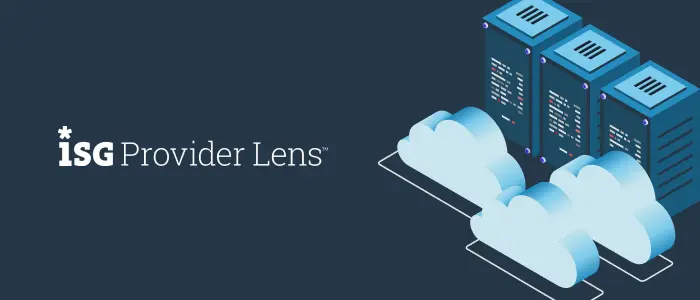
We can begin at the beginning with a basic definition of cloud operations, or CloudOps.
Situated at the crossroads of cloud computing and DevOps, CloudOps is all about the management, delivery, tuning, and performance of workloads and IT services that run in all kinds of cloud computing environments found in today’s enterprise. It brings together a combination of network, security, performance, device management, help desk, and other tasks that keep cloud-native applications and underlying infrastructure up and running.
Cloud operations incorporates analytics to enhance visibility of cloud environment components, providing the insight needed to control resources and run services more efficiently. Automation capabilities mean you experience fewer issues with your cloud applications and your data.
CloudOps and DevOps ‘ each with a role to play in digital transformation
Both DevOps and CloudOps are a vital part of your digital transformation, but there are definitely distinctions between the two.
DevOps brings developers and operations teams together to work toward common enterprise goals achieved through continual process improvements that greatly reduce disruptions to operations and development cycles.
With CloudOps, teams working on cloud architecture, software development, IT operations, security, and compliance processes collaborate to manage cloud-based applications and services.
What are the benefits of CloudOps?
Read up on the topic and the benefits derived from CloudOps become clear ‘ and very much complement cloud computing benefits. When you use cloud services, you have more flexibility and scalability. CloudOps helps these services be that much more secure and reliable, optimizing your organization with the right practices and procedures to enable you to reap maximum advantage from your cloud infrastructure with:
What are the challenges of CloudOps?
CloudOps is just one piece of the current cloud complexity storm that, according to 451 Research, includes:
Now add a skills gap ‘ and cultural gap ‘ into the CloudOps equation
Digging deeper into cloud-related challenges, 451 Research finds that dealing with cloud complexity is exacerbated by cloud skills shortages when it comes to managing your organization’s cloud environment. This ranges from a lack of qualified resources with cloud platform and cloud-native engineering expertise, along with security and even DevOps expertise.
Gartner agrees, finding that Infrastructure and operations teams face gaps on two sides: a technical skills gap and a cultural shortcoming that limits their ability to maximize the full potential of public cloud infrastructure and platform services. Gartner notes that in 2022, at least 35% of infrastructure and operations staff must possess the software engineering skills to deliver the pace of innovation needed by business ‘ and through 2022, traditional skills will be insufficient for 60% of the operational tasks for which infrastructure and operations leaders are responsible.[1] And that definitely includes cloud operations.
A better way: self-service for hybrid cloud operations
More than a simple semantic shift, Morpheus is characterizing our current approach to cloud management and operations as hybrid cloud application orchestration.
To quote directly from a recent Market Insight Report by 451 Research, ‘as hybrid becomes the organizing principle of digital era IT, the on-premises/off-premises IT paradigm is giving way to a more expansive view as organizations seek to build, operate, manage and secure workloads ‘here, there and everywhere.”
Consequently, as enterprise needs have moved beyond ‘just’ cloud management, platform and IT operations teams are now facing conflicting management demands for hybrid cloud, as well as containers, IT services management, and infrastructure automation.
Self-service management is increasingly an integral part of many cloud operations. Morpheus takes the point of view that the homegrown self-service management platform that many organizations construct are hard to maintain and develop at the enterprise scale needed to meet new demands.
This was a driving factor in the development and recent introduction of v5.4 for our orchestration and management platform. We’re focused on simplifying how you can deliver continuous automation that enables self-service. We’re breaking free from what we see as the outdated category of cloud management. Instead, we’re targeting different personas ‘ including CloudOps as well as DevOps, security, business, and finance. Our goal is to unify what are so often disconnected teams, tools, and technologies within large enterprises.
With an application-centric automation and orchestration framework like the latest Morpheus platform, you have access to a self-service catalog for provisioning applications made up of bare-metal servers, virtual machines, containers, and public cloud services.
Morpheus provides self-service for all phases and stakeholders in your cloud journey. Specifically for CloudOps, that means enabling hybrid, private, and public cloud access through:
Why choose Morpheus?
Morpheus quickly enables private clouds and centralizes public cloud access so teams can provision bare metal, VM, containerized, and cloud-native applications on demand while also controlling cost and enhancing security.
In fact, with more built-in integrations and native functionality than any other platform, Morpheus can be up and running in under an hour, including hooks to ITSM, ID Management, Infrastructure, IPAM, DNS, Backup, Logging, Monitoring, Load Balancers, and more.
Most significantly, Morpheus brings those integrations together into a logical, intuitive framework for automating and managing the full application lifecycle. This includes provisioning, CMDB updating, code deployment, ongoing maintenance, console access, and even teardown.
We take a cloud-aware, cradle-to-grave approach to modernize and manage all types of applications ‘ and that’s just what’s needed to paint a better CloudOps picture for your organization. You can consider us a force multiplier for your CloudOps team ‘ and an excellent way to bridge the current skills gap.
Request a Morpheus demo today.
[1] The Cloud Infrastructure and Platform Services Skills I&O Teams Require for the Future; Gartner; March 2022